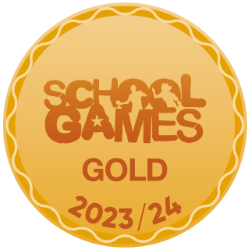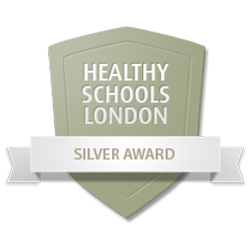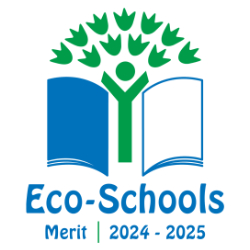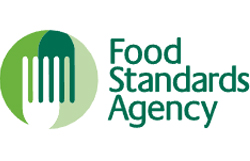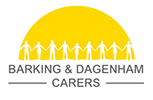At Valence, we believe immersion through speaking and listening, reading and writing, is how our pupils explore and make sense of the world beyond their own experiences. They acquire knowledge and build on what they already know.
Intent
At Valence, we believe immersion through speaking and listening, reading and writing, is how our pupils explore and make sense of the world beyond their own experiences. They acquire knowledge and build on what they already know. In order to create a lifelong enjoyment of literacy, we ensure our curriculum is diverse. This reflects the rich cultures of our families, enabling pupils to relate and connect to their learning.
Through literacy, pupils are empowered to communicate effectively about what makes them unique, valued and respected. Pupils have opportunities throughout the day to engage in high-quality literacy, allowing them opportunities to develop culturally, emotionally, intellectually, socially and spiritually.
We equip pupils from Early Years through to the end of Year 6 with lifelong communication skills to be independently successful beyond primary school.
Implementation
Our literacy curriculum is planned around high-quality texts, which have been carefully selected to inspire awe, wonder, curiosity and imagination in every child. At the same time, texts expose our pupils to challenging themes and powerful examples of vocabulary and language structures, that children successfully apply independently in their own talk for writing.
Early Years
Through daily story time sessions, whole class shared reading sessions and small group guided reading sessions, our pupils begin to observe and practise early reading behaviours that allow them to work towards the Early Learning Goals. Staff creatively plan independent learning through play activities, that link to story themes within role-play and small-world play areas. Our youngest pupils have opportunities to re-enact and mimic familiar rhymes and stories collaboratively with their peers. Pupils participate in whole class and group phonic sessions, which allow them to understand the relationship between letters and sounds and begin to segment and blend simple words. In addition to this, pupils develop their mark making skills, and progress towards writing meaningful, phrases and sentences independently, using their phonic and keyword knowledge.
Key Stage 1
Pupils in Years 1 and 2 wholeheartedly participate in daily whole-class literacy lessons, which centre around a high-quality core text. They have plenty of opportunities to discuss the genre, characters, events, their predictions and unfamiliar vocabulary, through carefully thought-out questioning. Independent writing tasks enable pupils to show their understanding of what they have read.
In KS1, small group guided reading sessions, use a more challenging shared text, allowing pupils to practise their decoding skills and express their understanding. There is a balance of teacher and child talk, with discussion and questions carefully planned in line with the KS1 reading domains. Pupils have the opportunity to dive deeper into the text and share their thoughts.
Whilst pupils in Year 1 continue to develop their decoding skills through daily phonic sessions. The majority of our Year 2 pupils progress on to ‘spelling and vocabulary’ sessions. These sessions encourage pupils to use chunking methods to decode, read, interpret and spell more ambitious vocabulary, that links to the core text, other areas of learning and the National Curriculum.
Writing in KS1 builds on from the intense immersion, centred around the core text within daily lessons. Pupils are taught the whole process, from planning through to writing and editing. The focus is for our pupils to write effectively and coherently for different purposes, drawing on their reading to inform the vocabulary and grammar of their writing.
Key Stage 2
From Year 3 to Year 6, whole class teacher-led reading lessons are planned with enough copies of the text for one book between two pupils. In most cases, a single text can last 3-6 weeks, allowing for plenty of time to explore the plot of the story and the characters involved. The pitch of the text is higher than what pupils would be able to read independently. Teachers model reading fluency through the echo reading model, which allows pupils to observe adults and peers demonstrating how to respond appropriately to the range of punctuation within a text as well as understand the misconceptions that arise when punctuation is ignored. From thereon, pupils are able to echo what they have heard and are encouraged to apply fluency when reading aloud and independently. The teaching of comprehension skills are explicitly linked to the whole class text, where carefully planned questions allow pupils to express their understanding of the text orally and in written form to meet the requirements of the KS2 reading content domains.
The core text inspires our writing outcomes in KS2, where pupils draw on their understanding of character, plot and setting to create a portfolio of work samples that engage and sustain the reader`s interest. The writing samples vary from stories, poems and a range of non-fiction writing styles.
Writing Expectations
Our curriculum is organised to achieve the following expectations in Writing:
Year 1
By the end of Year 1, a child should be able to write simple sentences independently, that include a capital letter at the beginning, a full stop at the end and finger spaces between words, be able to produce pieces of writing that communicate meaning by sequencing sentences; combining ideas into complete sentences. Children must be able to show an understanding of how words can be combined to make sentences. Varied and age-appropriate adventurous vocabulary must be developing and is sometimes used appropriately. Children should begin to include some of the tricky words taught in their independent writing and should be able to read their sentences out loud to an adult. Children should be able to apply simple spelling rules. In Reading children should be recognising familiar words and using a knowledge of phonemes and graphemes to decode unfamiliar words. They should be reading, discussing and enjoying a range of stories, poems and non-fiction texts to promote a curious mind. Children should express personal opinions about stories and listen to what others have to say.
Year 2
By the end of Year 2, a child should be producing pieces of writing that clearly communicate meaning in a variety of different forms independently. Children show some awareness of their audience and maintaining form throughout a piece of writing. Children can develop their ideas in a sequence of varied sentence, applying the skills listed below. Vocabulary used is interesting, varied and appropriate with some word choices used to create interest. Children are able to apply simple spelling rules that have been taught. In Reading, children should be reading age-appropriate texts, showing understanding that is generally accurate. They must be able to express opinions about major events or ideas in stories, poems and non-fiction. They should be able to use more than one strategy, such as phonic, graphic, syntactic and contextual, when reading new and unfamiliar words and establishing their meaning.
Year 3
By the end of Year 3, a child should be producing pieces of writing that are often organised, imaginative and clear, whilst beginning to adapt them for a variety of audiences and purposes. Children should be sequencing their sentences to extend their ideas logically, usually using the 3 correct grammatical structure. The vocabulary used in their writing is chosen for variety and effect, developing a rich vocabulary over time. In Reading, children should be able to decode texts with increasing independence and will be able to confidently make simple inferences.
Year 4
By the end of Year 4, a child should be producing a variety of writing which is lively and thoughtful. Children should be able to sustain their ideas and develop them in interesting ways, using appropriate organisational structures, for the purpose of the reader. Complex sentences used should be grammatically accurate to extend meaning. Vocabulary choices are often adventurous, and words are used for effect, with spelling generally accurate. In Reading, children should be able to decode unfamiliar texts with increasing independence, will be able to confidently make more complex inferences and summarise the plot.
Year 5
By the end of Year 5, a child should produce writing which is varied and interesting. Children should convey meaning clearly in a range of forms for different readers, using a wide range of styles, where appropriate. Their writing should be clearly structured with cohesion and links between paragraphs. Punctuation used accurately, should include; commas, apostrophes, inverted commas and semi-colons, in addition to all previously taught punctuation, and should be used to contribute to meaning. Children should be able to confidently justify their choices to their teacher. Their writing should include a variety of sentence lengths, structures and subjects providing clarity and emphasis. Vocabulary choices should be imaginative, and words should be used precisely. In Reading, children should be able to analyse an author’s choice of grammatical structures and begin to comment on their impacts. Children should also make justifiable inferences about texts across a range of forms.
Year 6
By the end of Year 6, a child should be producing writing that engages and sustains the reader’s interest, making appropriate adaptations for different forms. A range of sentences is used to create different effects and a range of punctuation is used correctly to clarify meaning. Vocabulary is varied to create different effects. In Reading, children should be able to analyse an author’s choice of grammatical structures and confidently comment on their impacts. Children should also make justifiable inferences about texts across a range of forms and give clearly structured responses using evidence from the text.
Downloads
- Literacy - Handwriting Overview (PDF)
- Literacy - Spelling Overview (PDF)
- Literacy - Writing Overview (PDF)
- Literacy - Reading Progression Grid (PDF)
- Literacy - National Curriculum Requirements (PDF)




